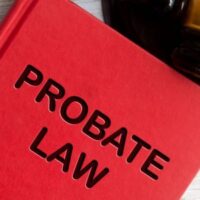Common Myths About Probate in New Port Richey

The majority of people have experienced the tragedy of losing someone they love. Even those who have not have known someone grieving a loved one and managing the legal, financial, and personal affairs of the deceased. Due to this, there are many myths about the probate process in New Port Richey, and many of them are simply not true.
Whether you are creating your own estate plan, or you are responsible for managing another person’s estate after they have passed away, it is important to fully understand the facts about probate. Below, one of our New Port Richey probate attorneys outlines some of the biggest misconceptions about probate, and the truth behind them.
All Assets are Subject to Probate
Many people mistakenly believe that all assets of an estate are subject to the probate process. Any property that has been transferred to a trust before a person’s death can be distributed to the beneficiaries right away without court approval. Any assets that are jointly owned are also not subject to probate. Instead, this type of property is automatically transferred to the surviving owner. Lastly, any account with a designated beneficiary, such as a life insurance policy or retirement account, is also not subject to probate.
A Will Avoids Probate
There are many important reasons to draft a will, but avoiding probate is not one of them. Any will must be submitted to the probate court and one of the first steps in the process is to prove, or validate, the will. The court will then formally appoint the personal representative who is named in the will. The personal representative will then administer the estate under the supervision of the court and ultimately distribute property to the beneficiaries in accordance with the will.
Assets Excluded from a Will are Property of the State
When a person passes away without a will in New Port Richey, and throughout all of Florida, they are considered to have died ‘intestate’. Contrary to what many people believe, this does not mean the property of the estate becomes the property of the state. It simply means that property is distributed according to the intestate laws in Florida. Surviving spouses and children are given first priority under the intestate laws, with other closest living relatives following.
A Personal Representative Cannot Be Disputed
Personal representatives are named in wills, which are meant to reflect the wishes of a deceased. Due to this, it is easy to assume that a designated personal representative cannot be disputed by the court, or anyone else. This is not true. The law outlines strict requirements for personal representatives and if a person does not meet these, the court will name another person. Also, other parties with an interest in the estate can dispute the personal representative if they have reason to believe the deceased appointed them while under undue influence or without mental capacity.
Our Probate Attorneys in New Port Richey Can Help with Your Case
At Messina Law Group, P.A., our New Port Richey probate attorneys can provide the sound legal advice you need regarding the process so you can make informed decisions. Call us today at (813) 492-7798 or fill out our online form to request a consultation and to learn more about how we can help with your case.
Source:
leg.state.fl.us/statutes/index.cfm?App_mode=Display_Statute&URL=0700-0799/0733/0733ContentsIndex.html

